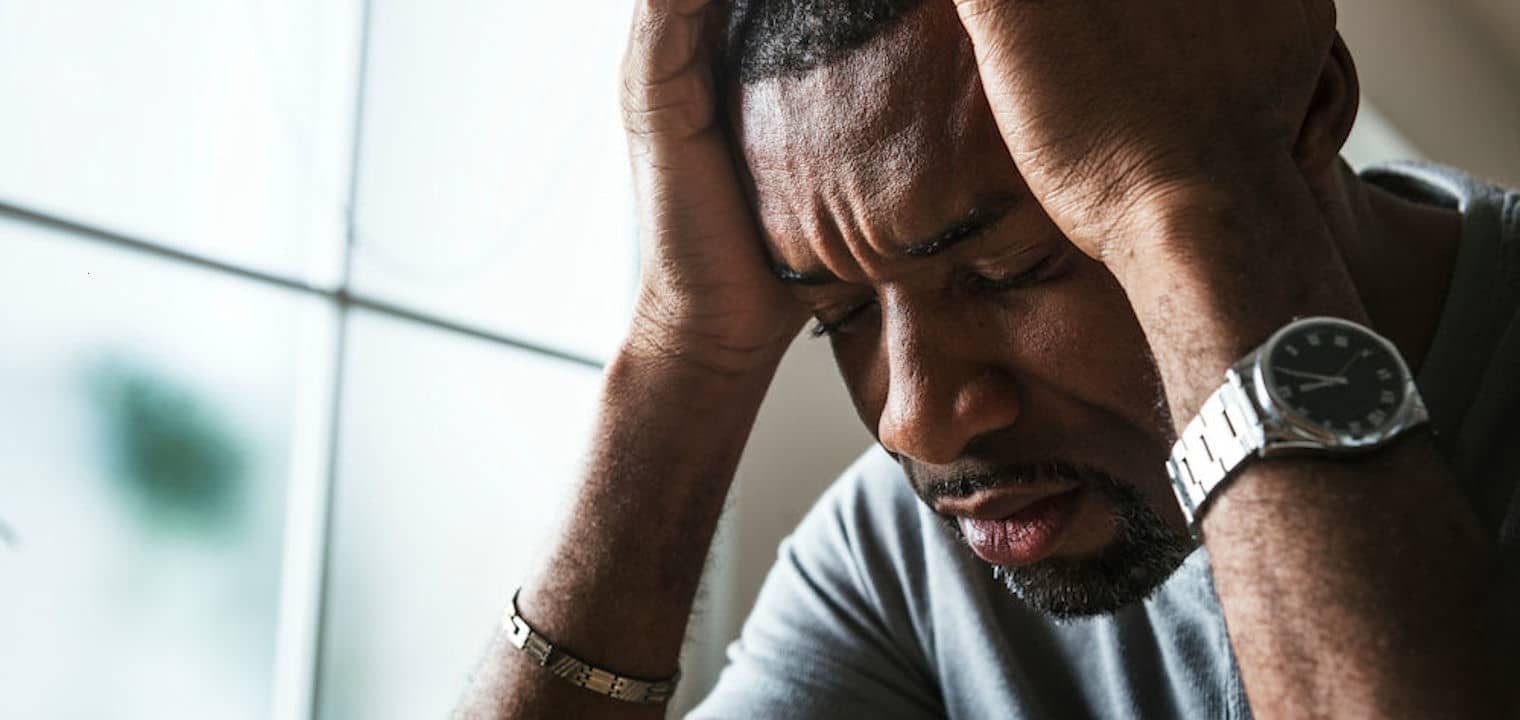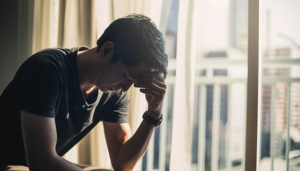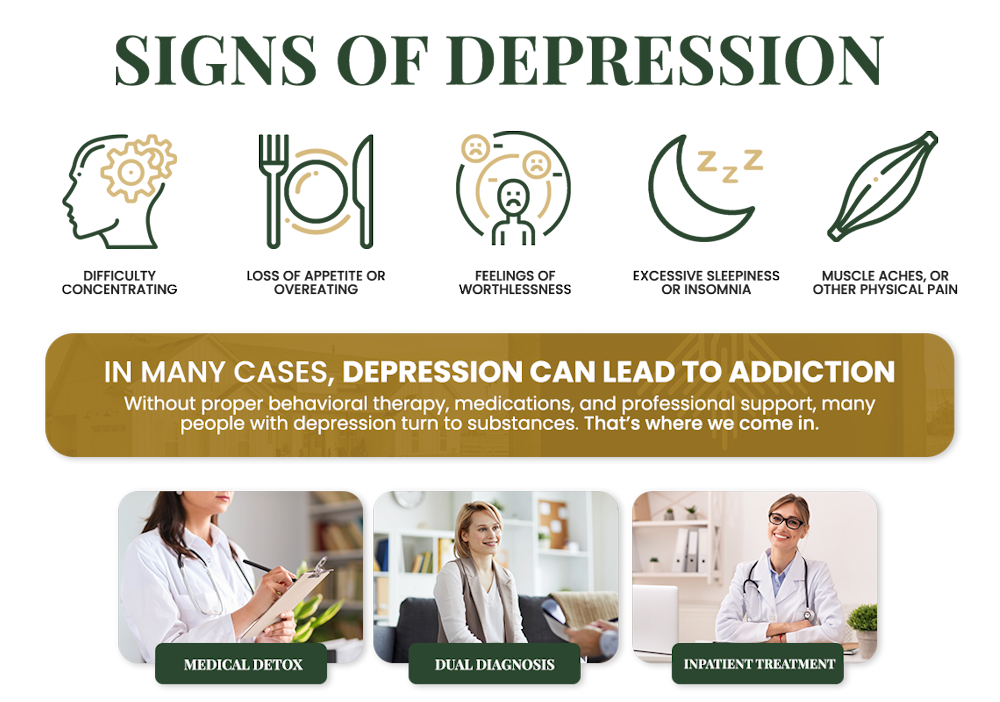Depression and Addiction Treatment Program in Idaho
In Idaho, depression is a mental health issue that affects many people. According to a survey from 2021, 33% of responding Idaho adults had symptoms of depression or anxiety. However, depression affects adolescents in the state as well. From 2016 to 2019, more than 17% of Idaho’s adolescents had a major depressive episode.
Only about 48% of them received treatment. Substance misuse is also a growing problem. In 2019, 5.9% of Idaho adults and under 2% of adolescents had an alcohol use disorder (AUD). Also, 2.6% of adults and 3.3% of adolescents had a drug use disorder in 2019.
As a result of pandemic-related stressors, about 15% of adults increased their drug use. Recently, Idaho’s governor announced that the state would spend $1 million to join the nationwide fight against fentanyl. In recent years, fentanyl use has been tied to many overdose deaths, property crimes, and other crimes. As Idaho continues fighting substance misuse, treatment facilities work hard to help people overcome addiction.
In many instances, people who become addicted to substances suffer from another mental health issue, and vice versa. Depression is one of the most common conditions affecting people, and it helps to understand all the facets of this serious disorder, and how treatment for addiction can save lives.
For those who suffer from a dual diagnosis, it helps to find a depression and addiction treatment program that fits your needs. At Eagle Creek Ranch Recovery in Nampa, Idaho we understand depression and addiction recovery and can help you or a loved one gain access to the help necessary to improve overall health and well-being.

Understanding depression is important for everyone whether they suffer from it or not. This is because recognizing the symptoms of depression in another person can help that individual. When people understand the illness, they are less likely to respond negatively to people who need help. Depression affects the way people act, think, and feel.
Those actions may seem offensive to people who do not understand the illness. Also, when people understand that seeking help is not something to feel ashamed of, they are more likely to get the assistance they need. Taking care of mental health needs is important in every stage of life.
What Is Depression?
Also called “major depressive disorder, depression is characterized as a mental health disorder that alters a person’s mood, perceptions, feelings, and behavior. Findings published online in the American Journal of Preventive Medicine, show that major depressive disorder is the most common in the United States, and is the strongest risk factor for suicidal ideation and behavior. In 2020, depression was prevalent in about 1 in 10 Americans and almost 1 in 5 adolescents and young adults.
Depression is treatable with professional care by mental health specialists which can assist you or a loved one in creating a treatment plan comprised of medications, behavioral therapy, and other types of care. There are different mental disorder types, which are discussed later.
Since the severity of it differs for people, treatment plans also differ. Also, some people may find certain medications more effective than other people find them. When left untreated, depression can decrease a person’s ability to function or to act and think normally. In some cases, it can lead to addiction and suicidal thoughts or attempts.
Contact Eagle Creek Ranch
Recovery Today!
Why Wait? Find The Help You Need By Reaching Out To Us Today! Our Admissions Team Is Standing By.
Signs and Symptoms of Depression
There are several possible signs and symptoms of depression, and many people suffer from most of them. Since everyone is different, the combination of symptoms they experience can vary. These are some common signs and symptoms of depression:
- Feeling pessimistic or hopeless
- Difficulty concentrating and remembering
- Loss of interest in pleasurable activities
- Continually feeling sad, empty, or anxious
- Feeling a lack of will to live
- Feelings of worthlessness or guilt
- Excessive sleepiness or insomnia
- Irritability
- Digestive issues that persist
- Restlessness
- Headaches, muscle aches, or other physical pain
- Loss of appetite or overeating
The symptoms people experience may also depend on the type of depression they have.
Types of Depressive Disorders
A mental health professional can determine which type of depression a person has. These are the main types.
MDD is one of the most common initial depression diagnoses. It occurs when depression lasts longer than two weeks. However, if it persists for years, there may be an additional diagnosis of PDD later. People may experience any of the symptoms in the earlier section about signs and symptoms, and they are intense enough to interfere with daily life.
This type of depression lasts for more than two years. With PDD, it is common to have a significant change in appetite. Also, many people notice significant sleep pattern changes. They tend to have low self-esteem and feel hopeless. There is usually a lack of energy and motivation, and they have difficulty concentrating or making decisions.
As a part of bipolar disorder, people have extreme lows. During these times, they may experience periods of depression as well. However, those symptoms may seem to go away when they experience intense high-energy periods. A pronounced lack of energy, feelings of sadness, and a lack of motivation are common bipolar depression symptoms.
In addition to suffering from symptoms of MDD, people with psychotic depression experience other extreme symptoms. They may have delusions, hallucinations, or paranoia. For example, some people believe that others are trying to harm them. They may also believe that people who try to help them conspire to cause them harm. When antidepressants and antipsychotics are ineffective, electroconvulsive therapy may work for some people.
This type of depression can occur around the time of birth or afterward. In some cases, it may occur up to a year after giving birth. It is normal for new mothers to cry, feel sad, and feel stressed. However, when those symptoms do not improve, when they worsen, or when they linger, it may be depression.
With the fitting acronym of SAD, this type of depression makes people feel extremely down and sad. They often experience pronounced sleep changes, apathy, lack of interest in usual activities, and discontent. It tends to affect people more in areas with fewer sunny days and shorter days. In most regions, the feelings go away during spring and summer. Antidepressants and light therapy can help treat this type of depression.
People who experience this type of depression notice it during the days or weeks leading up to menstruation. This is a severe form of PMS that can cause symptoms similar to MDD.
Depression and Addiction Statistics
About 25% of adults who have a serious mental illness also have a substance use disorder. Also, more than 40% of people in addiction treatment have a co-occurring mental health disorder. The most common co-occurring disorders in treatment settings are depression and addiction, and anxiety and addiction.
Depression is especially common with alcohol use. People who are dependent on alcohol are 3.7 times more likely to have Major depressive disorder (MDD). One study showed that 33% of people in alcohol addiction treatment met MDD criteria.

The Relationship Between Depression and Addiction
In many cases, depression can lead to addiction. People who feel depressed may not seek mental health help. They may not recognize the symptoms in themselves, and some people may not be able to afford help or may not have medical insurance. The good news is that marketplace health plans today are required to provide some coverage for mental health care. Also, many are affordable, and people with financial needs often qualify for reduced premiums with tax credits.
Without proper behavioral therapy, medications, and professional support, many people with depression turn to substances. They may use drugs or alcohol to provide temporary relief from the symptoms.
When people use substances regularly, they build tolerance and dependency. At that point, it takes more of a substance to achieve the same relief. This leads to dependence, which is when a person needs a substance to function. Without it, withdrawal symptoms start. That can lead to the disease of addiction, which is the inability to stop using the substance despite recognizing negative consequences.
Diagnosing Depression and Addiction
When people seek help for overcoming addiction, they may learn that they have depression. Addiction treatment facilities use several behavioral therapy approaches to treat addiction. As therapists work with patients, they often discover undiagnosed mental health issues. Mental health professionals use current diagnostic criteria to diagnose depression or classify types of it.
Seeking Treatment for Depression and Addiction

Dual Diagnosis Treatment: The Best Way To Treat Depression and Addiction
When a person with an addiction has a co-occurring disorder like depression, the individual has a dual diagnosis. There is a special treatment approach that shares the same name, and it involves simultaneous treatment of both issues. Without also treating the depression, a recovering person is more likely to use a substance again to self-medicate. People who go through treatment learn to manage their depression, cope with addiction triggers, and more.
Find Healing at Our Depression and Addiction Recovery Center
For those who need a depression and addiction treatment program in Idaho, we are here to help. Eagle Creek Ranch Recovery Center in Nampa, ID, offers medical detox, residential treatment, outpatient treatment, and other resources. We offer dual-diagnosis treatment for people with depression and addiction, other mental health issues, and substance use disorders (SUDs).
Our facility provides group, individual, and family therapy as well. As a result of our comprehensive approach, patients receive a high level of care and support as they start the recovery journey. To learn more about depression and addiction recovery in Idaho, please contact us today.

Clinical Director
Kendall Maloof is the clinical director at Eagle Creek Ranch Recovery. She is a licensed marriage and family therapist and has held multiple leadership roles before settling here at Eagle Creek. Kendall received her master’s degree in marriage and family therapy from the Chicago School of Professional Psychology in 2016. Her career in mental and behavioral health began in 2014 when she took up internships in both the nonprofit and for profit sectors. She interned at multiple reputable companies, such as The Living Success Center and 449 Recovery in California.
In 2019, Kendall became the clinical director of Sunsets Recovery for Woman, a dual diagnosis program in southern California. Kendall is a natural leader. She has an incredible ability to problem solve and stay calm in any situation. Kendall never fails to show up when she is needed, and her calm demeanor makes her team and clients feel at ease. Eagle Creek Ranch Recovery is proud to have Kendall as our clinical director.




